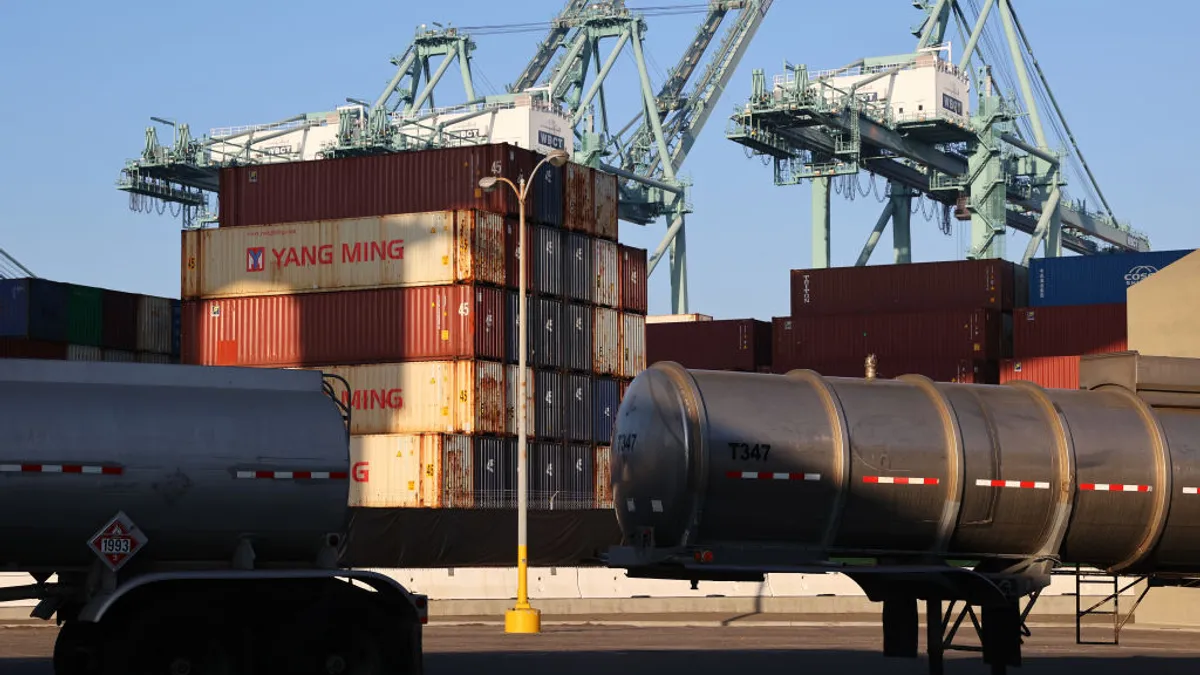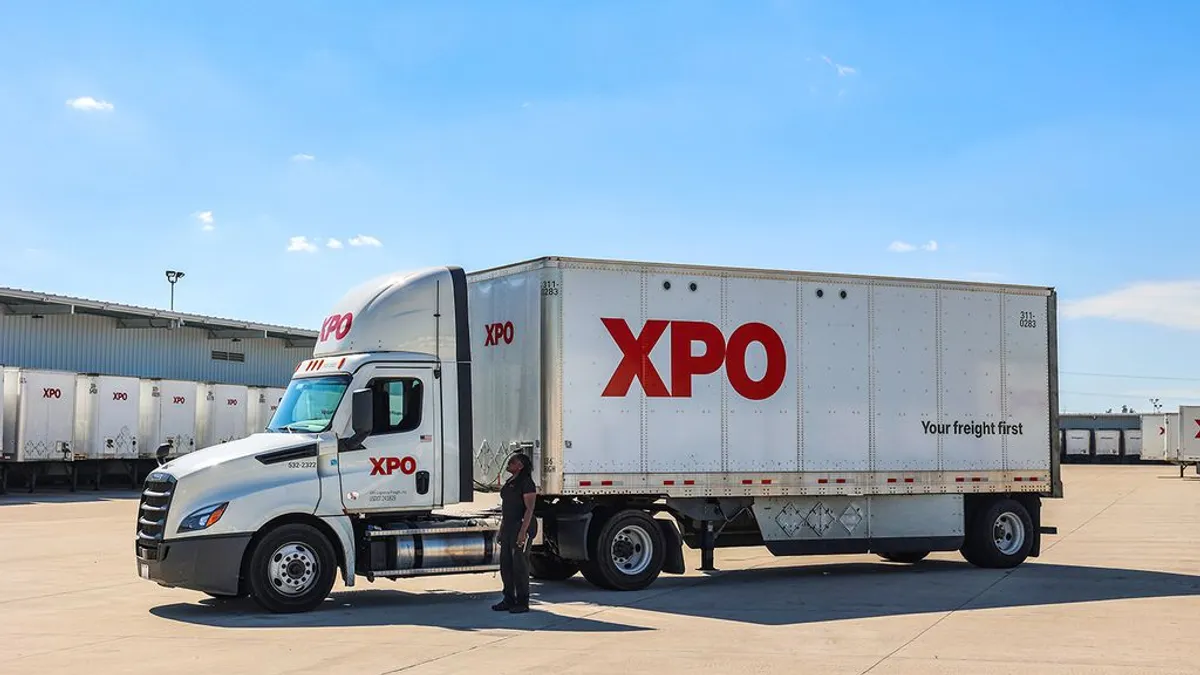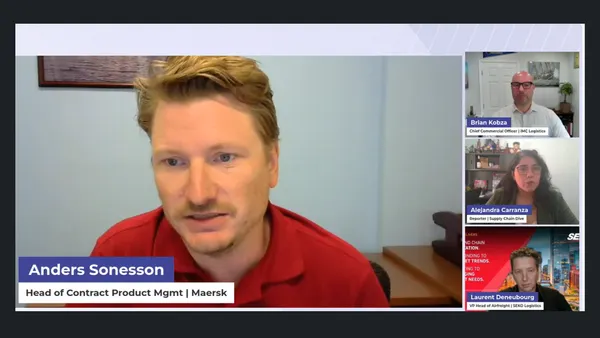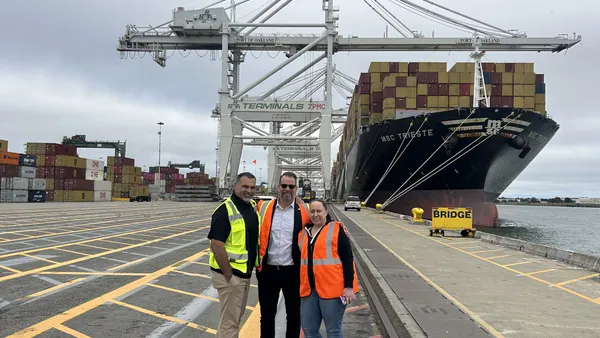Dive Brief:
- The Los Angeles Harbor Commission on Thursday approved an amendment to equalize the number of days rail- and truck-bound cargo can stay on docks before being subject to a threatened per-diem fee.
- The new rules would subject the two types of cargo at the Port of Los Angeles to a $100-per-day fee, starting on the ninth day it dwells on port. The fee would increase by $100 increments for each additional day of dwell.
- During the meeting, port representatives explained the old system — which only allowed six days for rail-bound cargo, but nine for truck-bound cargo — had unintended consequences. "We saw a decline in the number of imports going by rail in favor of more local, because it gave people more time to pick up their cargo," said Michael DiBernardo, deputy executive director of marketing and customer relations.
Dive Insight:
The new fee structure, above all, is designed to change shipper behavior.
If shippers were trying to buy time — even three days — by moving goods by truck instead of rail to avoid dwell fees, the new plan should remove that incentive.
For executives at the Port of Los Angeles, recent shifts in shipper behavior are signs that threats work.
The Port of Los Angeles first announced a dwell fee for import containers in October 2021 that would take effect on Nov. 15. But that never happened. Instead, the port has kept the fee on hold, one week at a time.
Explaining why the port announced the fee in October, but has yet to implement it, Executive Director Gene Seroka said in a December press conference the threat of a fee is working as designed.
"As I told the harbor commission when it approved the plan, I hope we don't have to administer any fees," Seroka said. "That's because it would mean the cargo was moving off our terminals, allowing for more ships to get to berth and cargo to be processed."
But, Seroka added, it's not an empty threat.
"We have only been keeping this in suspension seven days at a time. If we go backwards, you bet it will be implemented," he said.
Incentives have become a popular tool for managing the flow of supply chains. Because many of the actors responsible for moving goods are for-profit businesses, adding fees can prove a powerful way to motivate change.
"Even though we haven't charged anybody, we have seen success in the numbers declining for nine days and older," DiBernardo said.
Now, the Port of Los Angeles is gearing up to test the theory again. The port is threatening another fee, this time for empty containers. The plan is to enact the empty container fee on Jan. 30 — if the threat alone does not work.














